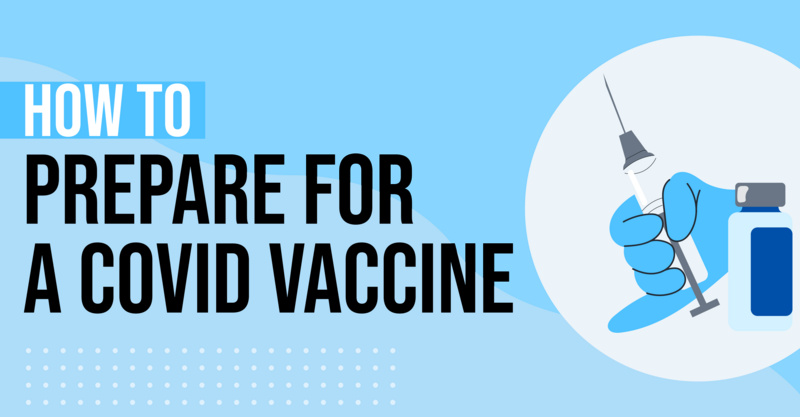Key Points
- The article discusses five reasons to consider cataract surgery: improved vision, color correction, glare reduction, increased independence, and treatment of other eye issues.
- Cataract surgery, performed by an ophthalmologist, involves replacing the clouded lens with an artificial one.
- The procedure is relatively quick, usually under 30 minutes, with a recovery period of about two weeks.
- However, it's important to be aware of potential risks such as bleeding, infection, retinal detachment, and vision loss.
- The article also suggests questions to ask your doctor about the surgery, and mentions other terms for cataract surgery, like cataract removal, cataract extraction, and laser-assisted cataract surgery.
5 Reasons You Would Need Cataract Surgery
1. To Improve Vision
A cataract is a clouded lens in the eye that can cause blurred or dulled vision.[1] Cataract surgery involves removing the clouded lens and replacing it with an artificial lens that can help you see better.[2]
2. Correct a Brownish Tint
Healthy eyes have clear lenses that help focus light and images on the retina. Over time, an affected lens or cataract may become yellow or brownish in color. This can make it difficult to see and recognize shades of blues and purples.[1] Replacing the affected lens can resolve problems with a brownish tint and with recognizing certain colors.
3. Reduce Glare
The blurred vision caused by cataracts can increase the glare from lights. This can lead to symptoms like headache and make it difficult to perform normal everyday activities, such as doing tasks at work, watching television, and driving a car. Cataract surgery helps reduce the amount of glare from bright lights.
4. Become More Independent
Suffering poor vision from cataracts may often require you to rely on others for help with basic tasks such as transportation, cooking, and reading. You may need someone to drive you to and from work or to run errands, and also help read prescription bottles and restaurant menus. Cataract surgery may be necessary if your vision is preventing you from being fully independent.
5. Treat Another Eye Problem
People who are diagnosed with diabetic retinopathy or age-related macular degeneration may have a cataract removed even if it isn’t causing problems with vision.[1] Many times, a cataract can prevent eye doctors from examining and treating other eye problems. If you have another eye problem, your doctor may suggest cataract surgery to address the other eye problem and improve your eyesight.
Understanding Cataract Surgery
Cataract surgery is a procedure in which a clouded lens, or cataract, is removed from the eye. This surgery is performed in an outpatient setting by a medical doctor called an ophthalmologist, who specializes in eye diseases and surgeries. Patients normally stay awake and are given local anesthesia in the form of eyedrops or a shot to block pain during the surgery.[2]
First, the eye doctor makes a tiny incision in the eye with the cataract. Then, the doctor removes the cataract using phacoemulsification, extracapsular extraction, or a laser. Phacoemulsification involves having the use of a tool that breaks the cataract into pieces small enough to suction out of the eye. Extracapsular extraction involves making a larger incision to remove the cataract in one piece. Laser surgery is similar to phacoemulsification but involves the use of a laser instead of a scalpel.[2]
The cataract is then replaced with a clear, artificial lens that corrects and improves blurred or dulled vision. Cataract surgery usually lasts under 30 minutes and offers a brief 2-week recovery time.[2]
Risks of Cataract Surgery
Bleeding and infection are risks associated with any type of surgery, including cataract surgery. Retinal detachment and loss of vision are the most serious risks associated with cataract surgery.[1]
Retinal detachment is a medical emergency in which the retina pulls away from supportive tissue to cause a partial loss of vision and a sudden increase in flashes and floaters. Retinal detachment causes no pain but can lead to total vision loss when not treated promptly. A serious infection in the eye may also lead to vision loss.[1]
Sometimes, the affected lens cannot be removed in its entirety during cataract surgery to result in clear vision. In these cases, patients return for surgery at a later time to have the remainder of the cataract removed from the eye and gain improved vision.[2]
Other risks associated with cataract surgery, though rare, are endophthalmitis, cystoid macular edema, and choroidal hemorrhage.[3] Endophthalmitis is an infection of the eye that occurs in roughly 1 in 3,000 cases. Cystoid macular edema is inflammation and swelling of the macula, and choroidal hemorrhage is acute bleeding in the choroid that commonly affects elderly patients.
What to Expect with Cataract Surgery
Your ophthalmologist will perform an eye exam and eye tests 1 to 2 weeks before cataract surgery to measure the size and shape of your eye, and the curve of the cornea. This helps your doctor choose a new lens that will help you see more clearly without the use of eyeglasses or contact lenses.[1]
You may be instructed not to eat or drink anything for at least 12 hours before surgery. Making transportation arrangements will be necessary since you won’t be able to drive home following surgery. When you arrive at the clinic, the area around your eye will be cleaned to reduce the risk for infection, and eye drops may be used to dilate the pupil of the affected eye. You will be awake for the duration of your cataract surgery but won’t feel pain thanks to the local anesthesia.[1]
After surgery, your doctor will monitor you for complications before allowing you to go home. You may experience itching, mild discomfort, and fluid discharge, which are normal and usually go away within 1 to 2 days after surgery. Your doctor may prescribe eye drops that promote healing, reduce inflammation, and decrease the risk of infection.[2] A full recovery from cataract surgery can last anywhere between 2 and 8 weeks.[1]
Questions to Ask Your Doctor About Cataract Surgery:
- Will the new lens eliminate my need for eyeglasses and contact lenses?
- What are the most common risks associated with the surgical method being used?
- How long will the surgery last?
- Will I be able to return home on the same day?
- How do I use the eye drops prescribed before and after surgery?
- How long do I need to wear an eyepatch?
- How long will my eye be sensitive to light and touch?
- When can I bathe or expose my eye to water?
- What activities should I avoid after my surgery?
- How long will my new lens last?
- Which symptoms should I look out for after surgery?
Cataract Surgery May Also Be Known as:
- Cataract removal
- Cataract extraction
- Phacoemulsification
- Phaco cataract surgery
- Laser-assisted cataract surgery
- LACS
- Extracapsular surgery
References
Frequently asked questions
What are some reasons to consider cataract surgery?
Some reasons include improving vision, correcting a brownish tint in vision, reducing glare, becoming more independent, and treating other eye problems.How long does cataract surgery usually take?
The surgery typically takes less than 30 minutes.What is the recovery time for cataract surgery?
The usual recovery time is about two weeks.What are some risks associated with cataract surgery?
The surgery carries risks such as bleeding, infection, retinal detachment, and even loss of vision.Who performs cataract surgery?
Cataract surgery is performed by an ophthalmologist.What does cataract surgery involve?
The surgery involves removing the clouded lens of the eye and replacing it with an artificial one.What are some other names for cataract surgery?
Other names for cataract surgery include cataract removal, cataract extraction, and laser-assisted cataract surgery.What questions should I ask my doctor about cataract surgery?
You should ask about the duration of the surgery, the common risks associated with the surgical method being used, and the recovery process.
Solv has strict sourcing guidelines and relies on peer-reviewed studies, academic research institutions, and medical associations. We avoid using tertiary references.









